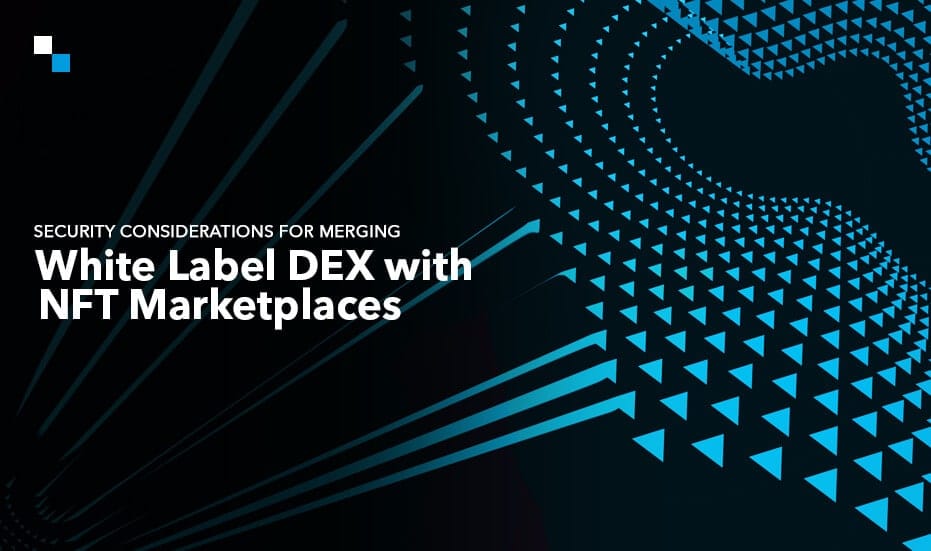
Use Cases of Blockchain for Real Estate Development
April 25, 2023
Be at the Forefront of the Internet with Web3.0 Development
April 26, 2023The world of banking has been completely transformed by cryptocurrencies, and with the development of blockchain technology, the idea of decentralised finance (DeFi) has become immensely popular. The DeFi ecosystem now includes decentralised exchanges (DEX), which enable users to transact in cryptocurrencies directly with one another without the involvement of middlemen. Cryptocurrency coins are developing as a form of exchange in the current digital era. Many people began to invest in cryptocurrencies. This led to the emergence of Decentralized Exchange Software Development.
Different kinds of crypto exchanges are being offered and launched in the current market. The market is more dominated by centralised exchanges than decentralised ones. Unexpectedly, though, many users like the decentralised cryptocurrency exchange over the centralised one. Therefore, creating a decentralised cryptocurrency exchange firm during this time will enable you to earn enormous profits. We will discuss the idea of a Decentralized Exchange Script and how it is enabling the future of cryptocurrency trading in this blog.
What is Decentralized Exchange Script & How does It Work?
A decentralised exchange (DEX) runs on a decentralised network that is often created using blockchain technology. Decentralised exchanges (DEX) permit direct peer-to-peer transactions without the use of a middleman, in contrast to conventional centralised exchanges (CEX), which rely on a centralised intermediary to facilitate transactions. Users can trade cryptocurrencies in a transparent and trustless manner while maintaining full control over their funds. Create DeFi Exchange to make Bitcoin trading over a decentralised network safe and effective. Smart contracts, which are self-executing contracts created in code and recorded on a blockchain, are the basic idea of Decentralized Exchange Script. Smart contracts are in charge of making cryptocurrency exchanges possible, confirming transactions, and making sure that money is only delivered when certain criteria are met.
A user must connect their cryptocurrency wallet to the Decentralized Finance Exchange in order to trade on the DEX. This enables them to put orders to buy or sell bitcoins directly and interact with the smart contracts. The orders are subsequently verified by smart contracts, which then carry out the trades automatically and without the need for a middleman. Cryptocurrencies are transferred directly between users’ wallets after a transaction is complete, doing away with the necessity for a third party to maintain custody of the funds.
Challenges in Decentralized Exchange Software Development
Scalability
Since most blockchain networks have a finite capacity for processing transactions, scalability is a major obstacle in the development of DEX software. During times of heavy demand, this may lead to lengthy transaction times and expensive petrol prices, which may negatively impact the user experience and prevent DEX from being widely adopted.
User Interaction
Another difficulty in developing a Decentralized Exchange Script is the user experience. Decentralised exchanges may not be as user-friendly as centralised exchanges and can be complicated, requiring users to deal with smart contracts. DEX can gain more users by enhancing the user experience by making it more intuitive, simple to use, and aesthetically pleasing.
Liquidity
A problem for many DEX platforms is liquidity. Due to the peer-to-peer nature of Decentralized Finance Exchange, the liquidity of certain trading pairs may vary, which may cause slippage and have an adverse effect on the trading experience. For different cryptocurrencies and trading pairs to have enough liquidity, traders and investors must be attracted.
Interoperability
Create DeFi Exchange but try to avoid a constant issue in interoperability. Since several blockchain networks could have their own standards and protocols, it may be challenging for DEX to function properly across them all. Interoperability across various blockchain networks can make DEX more accessible and usable.
Regulatory Conformity
The development of DEX software faces a significant barrier in regulatory compliance. DEX can cause regulatory difficulties due to its decentralised and permissionless operation, particularly in regards to matters like know-your-customer (KYC) and anti-money laundering (AML) laws. It can be difficult to retain the decentralised character of DEX while ensuring compliance with pertinent rules.
Solutions You Can Adopt To Create DeFi Exchange
Solutions at Layer 2
Scalability issues in DEX software development can be addressed using layer 2 solutions like sidechains and state channels. Off-chain transactions are made possible by these technologies, which lighten the burden on the primary blockchain and reduce transaction times and gas costs.
Friendly User Interfaces
By enhancing the user experience of Decentralized Finance Exchange with intuitive user interfaces, detailed instructions, and aesthetically pleasing designs, DEX may become more approachable and user-friendly and draw in more users.
Market Making and Incentives for Liquidity
Liquidity incentives and market-making programmes can be implemented to aid with the liquidity issue in DEX software development. By enticing traders and liquidity providers to use the platform, these programmes can increase the liquidity of certain trading pairs.
Protocols for interoperability
The usability and accessibility of Decentralized Exchange Software Development can be improved by creating interoperability protocols and standards that enable DEX to function seamlessly across various blockchain networks. Collaborations between various blockchain initiatives and the creation of cross-chain bridges may be necessary for this.
Compliance
Regulatory issues in Decentralized Exchange Script development can be addressed by implementing compliance solutions like AML and KYC protocols. This may entail keeping the decentralised character of DEX while integrating identity verification procedures and transaction monitoring technologies.
Potential of Decentralized Finance Exchange for Businesses
Decentralized Finance Exchange has the ability to completely redefine how firms interact and handle their digital assets. The following are some potential advantages of DEX software for companies:
- Enhanced Security: Decentralized Exchange Script runs on a distributed, decentralised network, so there isn’t a single point of failure. Compared to centralised exchanges, which are susceptible to hackers and security breaches, this offers improved security. Businesses may have more control over their digital assets and lower the risk of theft and fraud by using DEX software.
- Increased Privacy: Peer-to-peer transactions made possible by DEX software are possible without the use of middlemen. Businesses benefit from improved privacy as a result of not having to reveal their personal or financial information to a centralised entity.
- Decentralized Governance: Blockchain networks, which DEX software commonly uses, are regulated by consensus among network users and have decentralised governance. This indicates that choices about how the DEX platform operates and develops in the future are made democratically. To ensure that their requirements and interests are reflected, businesses can take part in the governance process and have a say in how the platform is developed.
- Global Access and Inclusivity: Decentralized Exchange Software Development gives businesses access to the entire world, enabling them to conduct business with partners and clients from all over the world without the use of middlemen or geographical restrictions. For small and medium-sized businesses (SMEs) who may encounter entrance barriers in conventional financial systems, this can open up new business prospects and markets. By enabling companies of all sizes to engage in the decentralised economy, DEX software encourages inclusivity.
Conclusion
By giving customers greater security, anonymity, and accessibility, Decentralized Exchange Software Development has unleashed the potential of cryptocurrency trading. Scalability, user experience, liquidity, interoperability, and regulatory compliance are some of the issues that must be resolved. With the help of Decentralized Exchange Script, enterprises may tokenize their assets and represent them on the blockchain as virtual tokens. This may enable more effective asset management techniques including supply chain tracking, automated royalties, and fractional ownership. Businesses can take advantage of blockchain technology’s advantages to improve their asset management procedures and develop fresh company concepts.
Decentralized Finance Exchange is anticipated to play a significant role in determining the future of cryptocurrency trading as the DeFi ecosystem develops by giving users more control, accountability, and security over their digital assets. Antier can help you create DeFi Exchange with the latest technology and advanced features.



